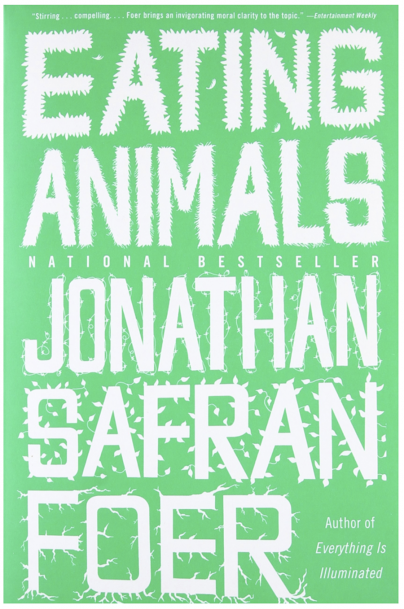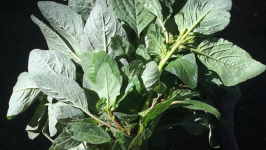Eating Animals by Jonathan Safran Foer
Critics lauded Jonathan Safran Foer’s quirky novels, Everything is Illuminated and Extremely Loud and Incredibly Close, while the feat of journalism that resulted in his 368-page 2010 book, Eating Animals, received fairly negative reviews from the likes of the New York Times and the Guardian. Perhaps “negative” isn’t the right word so much as “bored.” Most critiques of Safran Foer’s three-year delve into researching food agriculture lament that he presents no new argument.
Safran Foer starts his book with a bit of his own history with food and the questions he set out to investigate when writing this book: What is meat? Where does it come from? How is it produced? How are animals treated, and to what extent does that matter? What are the economic, social and environmental effects of eating animals?
While there isn’t anything necessarily new presented in this book, what I find refreshing about Safran Foer’s approach is that he has no agenda going into his research; he truly tries to understand, along with his reader, the validity and all aspects of eating animals. He does so by posing his own thoughts that come up—Why don’t we eat dogs but we do eat pigs, which are just as intellectually and emotionally intelligent?—and offering varying opinions on issues: an animal activist with whom he entered a turkey farm somewhat legally one night to check on the welfare of animals; a turkey farmer who works for a factory farm; a turkey farmer who runs his farm family-style, the way things used to be.
Much of the information presented in this book has been written about ad nauseam—factory farming has become the new norm, animals are exploited, we’re overfishing our oceans. But the way Safran Foer frames this information in respect to philosophy or definitions of animals makes for a unique take on a covered topic. Be warned, though: His descriptions of the horrors of factory farming are rather explicit and will leave the reader completely committed to becoming at least vegetarian, if not vegan.








